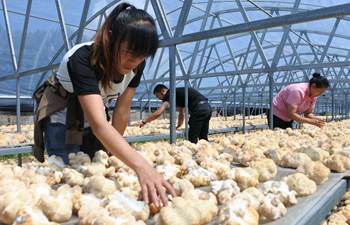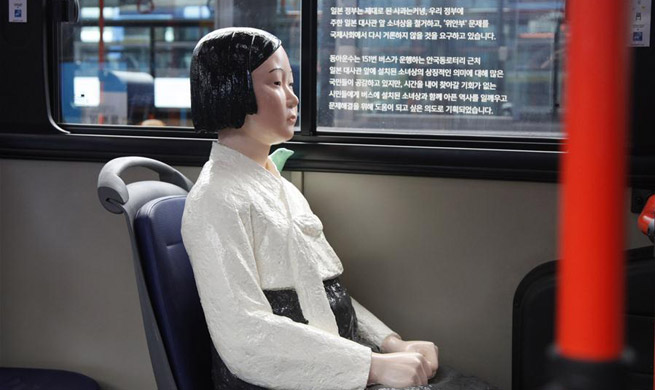KHARTOUM, Aug. 14 (Xinhua) -- The Sudanese government has recently decided to gradually replace imported medicines with local alternatives, in the hope of reviving the national pharmaceutical industry.
The decision first aims to encourage local pharmaceutical industry by gradually stopping the imports of medicines that are manufactured locally, said Sudan's Health Minister Bahar Idriss Abu Garada at a press conference in Khartoum Monday.
Official statistics indicate that the country imports medicines worth more than 200 million U.S. dollars a year, while local medicines account for 40 percent of local market demand.
"We are keen on smooth implementation of this decision and to ensure that the local market will not be affected. We have adopted arrangements to ensure that there will not be any gap," he added.
He explained that the imports of 232 types of human medicines and 24 types of veterinary medicines would be stopped within next two months, urging medicine importers to adjust their conditions before the deadline.
Meanwhile, Director General of National Council of Medicines and Poisons in Sudan Zine El-Abidine Abbas Al-Fahal, regarded the decision as a positive turning point to protect the national industry.
"This decision will contribute to the revival of the national industry and provides the state with cash resources in foreign currency that was used in importing medicines which are locally manufactured," Al-Fahal told reporters.
He said the government authorities at the beginning would face difficulties such as to provide sufficient medicines to meet the demand, to ensure the qualities of local medicines as well as to change consumers' perceptions that favored imported medicines.
Medicine manufacturers in Sudan welcome the decision.
Chairman of Chamber of Medicine Manufacturers in Sudan Ahmed Al-Badawi said in a statement Monday that "the chamber embarked on provision of 100 types of locally manufactured medicines as a first phase in implementation of a self-sufficiency project soon after the decision."
He lauded the abilities of local pharmaceutical firms to provide medicines of required standard, adding "our factories implement international standards that ensure the quality of their products."
However, medicine industry in Sudan is still facing challenges relating to lack of foreign currency to import crude materials used in production.
Al-Badawi admitted the problem by saying "the local industry faced unavailability of foreign currency, some factories would cease operation because of this financial problem."
Pharmacists say the decision will be beneficial to the industry once implemented correctly and smoothly.
Sudanese pharmacist Ahmed Abdalla Khidir told Xinhua that the decision would provide the market with medicines in the long term, as Sudan are currently suffering from a lack of medicine varieties due to the insufficient amount of foreign currency to ensure imports.
He added that the decision is also likely to reduce the cost in the medicine industry, as the rising exchange rate of the U.S. dollar against the Sudanese pound has led to a great increase in the prices of imported medicines. The local medicines, however, helps to reduce the market prices.
Nevertheless, the public expressed concerns over the inability of local medicine providers to produce their products based on international standards, or that a gap may occur between demand and supply in the market if some firms stop operation.
"There is belief among the citizens that imported medicines are better than the locally manufactured ones. There is a distrust in the national industry and it is not confined to medicines only," Ali Sid Ahmed, a Sudanese citizen, told Xinhua.
There around 27 pharmaceutical firms in Sudan responsible for production of about 900 types of medicines.

















